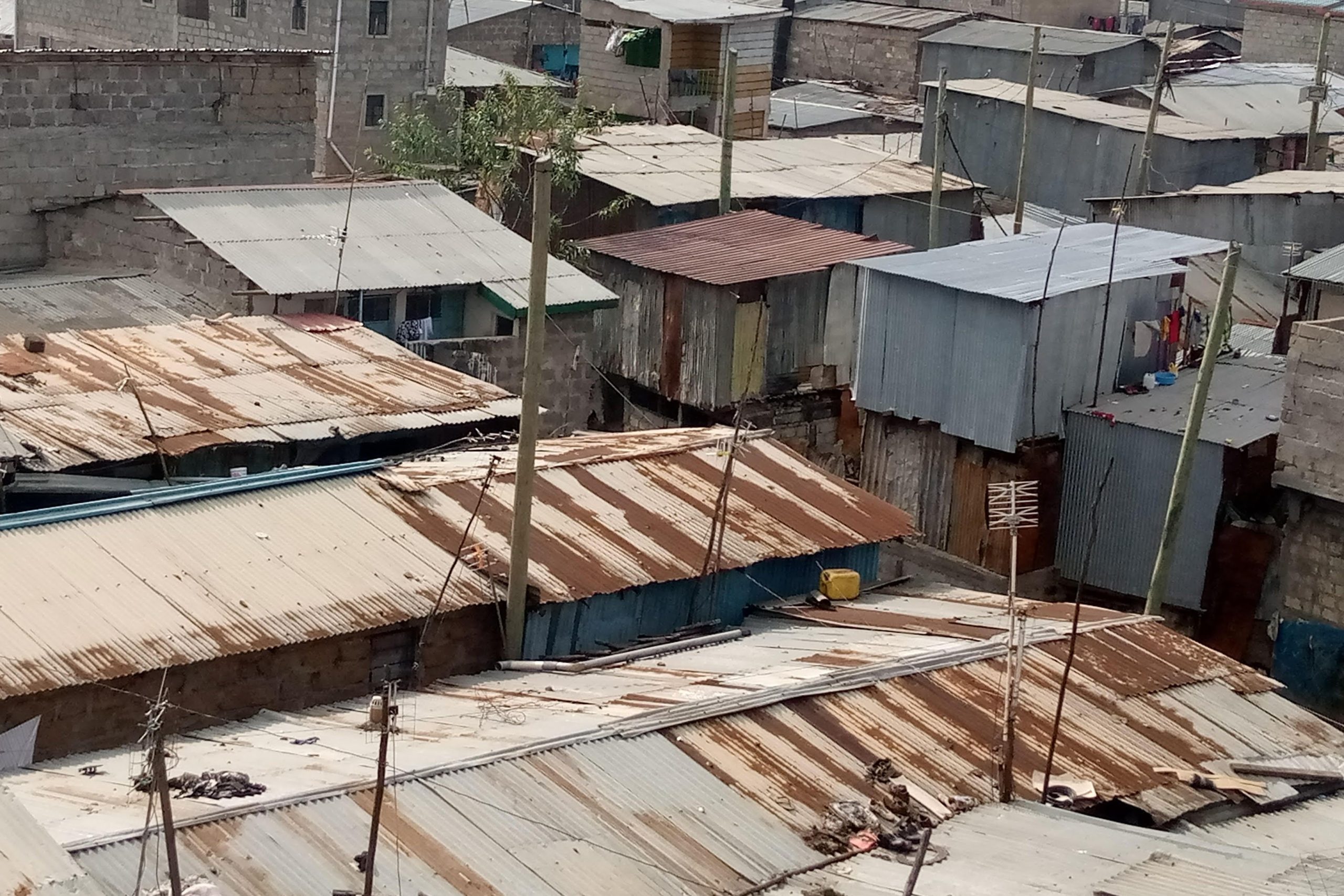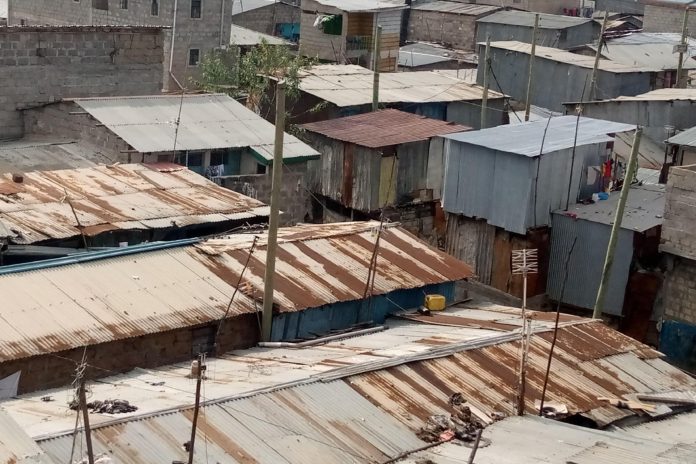By Lenah Bosibori
Nairobi, Kenya: As the new Coronavirus continues to spread quickly in Kenya, people in informal settlements are facing major locks in their houses due to the major blows they have received on their businesses and work stations.
It is only two months since Kenya announced its first victim and the impact of this pandemic has already trickled down to Nairobi’s Mukuru – Kayaba informal settlement.
In this congested single-roomed tin shacks where people share toilets, bathrooms, and water fetching areas, avoiding COVID – 19 is only a dream to most of the residents.
“You find that most of the people in these areas don’t even have a single meal to put on the table as we speak, said Mary Omosa a small business owner in Mukuru slums.
Mukuru slums being one of Nairobi’s many informal settlements where residents typically live in single rooms built from either concrete or iron sheets, many people are struggling to make ends meet.
People living around these areas work as security guards and domestic workers at Nairobi’s industrial area, many of them have been laid off while some are going without pay.
It is Friday morning and Fredrick Mogambi wakes up at dawn to go open his small restaurant as usual to serve his customers, little does he know that the owner had placed a padlock on the door due to rent arrears.
“I had talked to my landlord and I promised to pay the moment I get something from the business even if we don’t sell,” Fredrick told Talk Africa in an interview at his residence in Mukuru Kayaba.
He said the global pandemic has forced him to shift from a concrete one bedroomed house to a single iron sheets room that is infested by rats.
“I shifted to this small house hoping to save money and boost my business but I tell you things are bad,” said Mogambi.
He used to sell food to students at Railway Training Institute where he used to get a minimum profit of Shilling 2,000 per day but he is now counting losses and watching his business die slowly.
“Of late I have been cooking for my own consumption and if luck to some few customers, things are bad I tell you, no one can understand unless he/she is the one affected,” said Mogambi.
He said that the dusk to dawn curfew worsened his business because he used to close his restaurant at midnight and he is now forced to adhere to the regulations put across by the government.
Mogambi’s case is not alone, Esther Ajiambo is a single mother who said that putting food on the table for her three and a half-year-old daughter is a huge challenge. She is fearing that anytime from now the landlord might lock her house.
“I have been forced to turn my single iron sheets room into daycare so that I can at least have something for my baby,” said Ajiambo. “But even this care is not rewarding I only receive two to three babies a day and some days none.”

She questioned the distribution criteria of a government stipend since she has never received a coin since the announcement by the President.
“I wonder who the beneficiaries of this government stipends are, I only hear people talk about them,” said Ajiambo.
Many residents of Mukuru slums are complaining about locking their houses due to dwindling income from their businesses or workstations.
“I found a lock yesterday in my house, I surely have nothing, I have been a school driver and since schools are closed I have nothing at all and my landlady can’t understand my situation,” said Mark Mbuthia a local resident.














